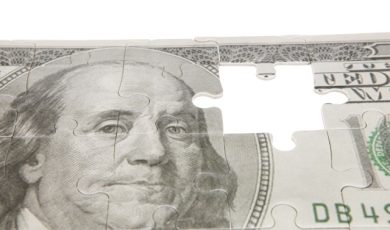The shutdown of most sporting events due to COVID-19 presents problems and possibilities for the nascent legal gaming industry in the US.
Most importantly, whether responsible gambling initiatives will take root or set back measurably during this critical time.
So what makes this a potentially dangerous period? Bettors venturing into markets to wager on sports they’ve never seen and can’t even watch on television. US online casino gamblers with newfound free time because of sheltering orders or unemployment. Some unscrupulous operators picking at the edges of unethical business practices. That’s all according to Amani Toomer, a former New York Giants wide receiver and member of the GVC Holdings Global Foundation, which is tasked with addressing such issues as problem gambling.
“I just imagine people at home, with lots of free time, and sometimes people let things get out of hand,” Toomer told PlayUSA.com. “I think that could be a problem because people have more time to waste and it’s more exposure to a person who is prone to these types of illnesses. It just can really snowball because it just opens people up to more opportunities to fall into a trap.
“We feel like there’s a good opportunity to have people become aware of it and want to get help out there for people with all this extra time or find themselves getting in a hole that they don’t want to and we don’t want them into, just getting to a point where it’s just not productive and not entertainment anymore. We want it to remain entertainment.”
Toomer says problem gamblers, including those who may not realize or admit a problem could soon fall into peril if they “think irrationally that they could make up their extra income by gambling online and start gambling in patterns that are irregular to them.” Many people now have copious amounts of unoccupied time either because of sheltering orders or because they’re among the more than 17 million laid off in the United States in the current economic morass.
Exotic options problematic for bettors and books?
Sportsbooks themselves are hammered by the economic fallout. Global power GVC Holdings estimated COVID-connected losses could total 150 million pounds by July. The American Gaming Association (AGA) estimates that around 625,000 casino and resort employees have lost jobs.
Sportsbooks have turned to the unusual and scant few options to attempt to maintain some semblance of volume until mainstream sports return. That’s meant Russian table tennis, Nicaraguan soccer, sumo wrestling and esports so far.
Whereas many bettors have probably played ping-ping, bet on an English Premier League game or humored a few minutes of Sumo wrestling highlights at some point in their lives, they’re not as versed in these sports as the NFL, NBA or college football in terms of what they know and how they could be reasonably assumed to wager astutely.
“People like to bet what they know,” observed William Hill trading director Nick Bogdanovich.
They don’t know Russian ping pong, and this, Toomer said, creates more concern.
“If you find yourself betting on stuff you know nothing about, you’re gambling on Russian table tennis, you might want to think about the relationship you have with responsible gambling,” he said, “because it’s just one of those things where you find yourself doing things that you ordinarily wouldn’t do, not because of boredom, but out of because of a need to fill a hole in something that should be entertaining, should be fun.
“And it becomes more than that when you are looking outside of your normal comfort zone, or trying just to get that fix. The problem gambling becomes bigger than everything else. And that’s kind of one of the definitions of a problem, is when you start taking chances that are detrimental to your lifestyle and your life.”
GVC Foundation hopes to advance responsibility now
GVC Holdings, which owns Ladbrokes Coral Group in the United Kingdom and in 2019 formed Roar Digital with MGM Resorts in the U.S., launched a global foundation in September.
They began to address multiple issues pressing the gaming industry and drilled down specifically on responsible gambling in October by forming a group in conjunction with the National Council on Problem Gambling. Toomer, Martin Lycka, director of regulatory affairs at GVC Holdings, and William J. Pascrell, III, partner at Princeton Public Affairs Group were named trustees.
While the COVID-19 pandemic has hammered the gaming industry, there is something to be made of the grinding halt, Lycka said. And, he added, this period underscores the industry’s need to engender responsibility in its customers.
GVC has burnished its pre-existing “Markers of Harm” problem gambling-evaluation with two additional elements specifically germaine to the COVID-19 situation and increased communications with customers, Lycka told PlayUSA.
The “Markers of Harm,” Lycka explained, are a collection of data points GVC or any other company could use to identify potential reckless behavior. This includes the frequency of a customer’s play, whether they tend to play after midnight, have a strong tendency to play on payday or chase losses.
“All these triggers give us a very, very good overview of behavior patterns of individual customers and based on those triggers, we take action in relation to the individual account,” Lycka told PlayUSA. “But the practical upshot is that if a customer triggers out of those nine, let’s say two off those alert mechanisms, then somebody in GVC’s responsible gambling or customer services team picks up a phone to the customer and checks on the customer to find out that everything’s all right. There could be a perfectly logical explanation for the change in the customer behavior. They could be shift workers and these people may for legitimate reasons bet after midnight, for example, or if it turns out that a customer has started spending more money on our sites, the customer might have had a pay rise, for example. So that would be an example of a perfect legitimate explanation of perfectly legitimate reasons for the change in customer behavior.”
A slow but steady improvement in responsible gambling
Lycka acknowledged that the American market is “getting there” in terms of responsible gambling measures, but remains not as “sophisticated” as its more mature and expansive European counterpart.
Sports betting is currently legal in 23 American states or jurisdictions and underway in 18 (nine with full mobile), bringing market share and tax revenue away from unlicensed offshore operators. This is also a facet of the problem and solution, Lycka said.
“US regulation has not necessarily captured the most recent responsible gambling trends just yet. Don’t get me wrong, I’m not not trying to blame anyone,” he said. “I believe that to some extent it actually makes sense because the market is potentially not yet sophisticated enough for all those tools. So definitely the focus needs to be on channeling the previously unlicensed offer into the regulated market. And of course that needs to go hand-in-hand with consumer protection that can be progressively ramped up.
“I believe that the US industry is on the right track, but it will still need some time to get there. I don’t mean to sound cynical, but perhaps the current crisis provides the US with an opportunity to step up its efforts in that regard as well, all linked to … people being isolated at home and potentially being tempted to play online.”
The industry must also do better, Lycka said, in policing the handful of operators who sought to exploit the crisis in its early stages.
“There has been some exploitation of the current crisis for greedy revenue purposes by some operators,” Lycka said. “They are usually much smaller operators whom I would call rotten apples in our little industry barrel that would simply choose to not have any responsible gambling tools.”
Measures taken now can later benefit the industry and gamblers
Eventually this will be over. It will not happen instantly, but at some point, the 989 casinos now closed nationally (according to the AGA) will reopen and customers will be allowed to return.
Some may be reticent, as they would be with a restaurant or movie theater. Some will toe-tap at the front door awaiting the deadbolt to be clicked open. Whether their state had a legal online option for their casino, poker or sports betting tastes will likely factor into their response.
Like GeoComply CEO David Briggs, Lycka thinks mobile gambling can be a responsible gambling tool because it allows for better monitoring of player habits, specifically destructive ones.
“I also see it as an opportunity from the responsible gambling best practice standpoint. And, hopefully that’s also a part,” he said. “I believe it may help the potential floodgate issue that we could have at the end of the crisis. In a state that has not yet regulated online, punters who would normally go to a casino but now are confined to their home, they would have an opportunity to open an online account, which would also mean that they would get access to do additional information about how to gamble in a responsible way.
“They would familiarize themselves with [responsible gambling] tools and perhaps when they’re back in the casino, I would think, perhaps naively, when they come back to their favorite slot machines, they might be thinking, ‘All right, I can limit myself online. So how about I try to self-impose those restrictions when playing in a casino?’”








